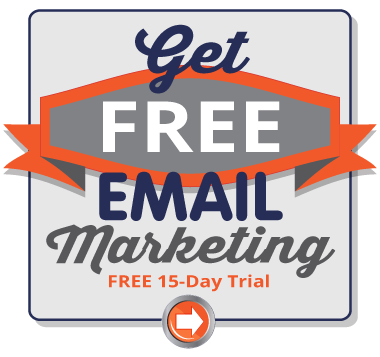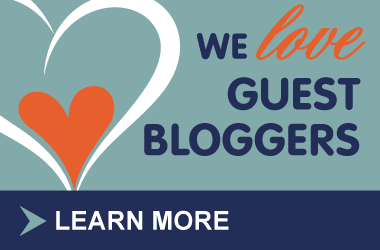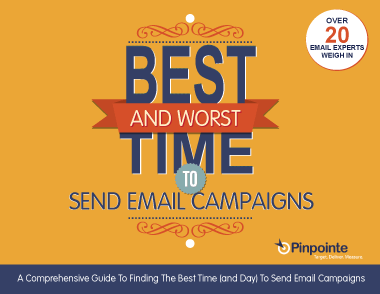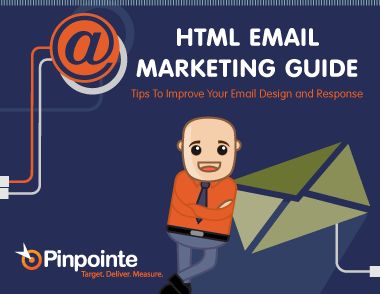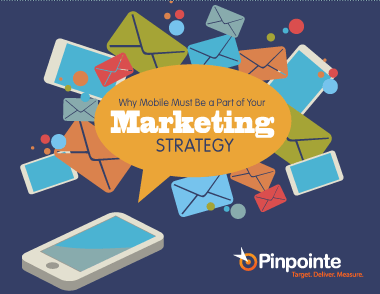Does your brand send a regular newsletter? Many brands do. Research shows 77% of B2B companies consider a newsletter an important part of their email marketing strategy. Plus, newsletters are listed as one of the top email trends for 2021 by Envato.
While many companies produce and send email newsletters, it’s not always easy to come up with content ideas for them. To help you create can’t-wait-to-read newsletters, we’ve compiled a list of 30 ways to inspire new content for your newsletter.
Content that’s helpful to the subscriber
For starters, you’ll want a newsletter template with a great design and one that you can populate with content easily. The newsletter should contain great content that’s valuable to subscribers. Following that line of thinking, here are a few ideas:
1. How-to articles
Create content that’s relevant to your target audience that helps them accomplish something with step-by-step instructions. For example, a furniture store can offer an article about how to remove pet stains from furniture, while a travel agency could provide steps to book the perfect honeymoon.
Think about what kind of instructional content you can provide the contacts on your email list. Put the article on your blog and then send readers a link to your article with a few lines that explain why they should read it. Here’s a great example of a how-to article highlighted in a newsletter:
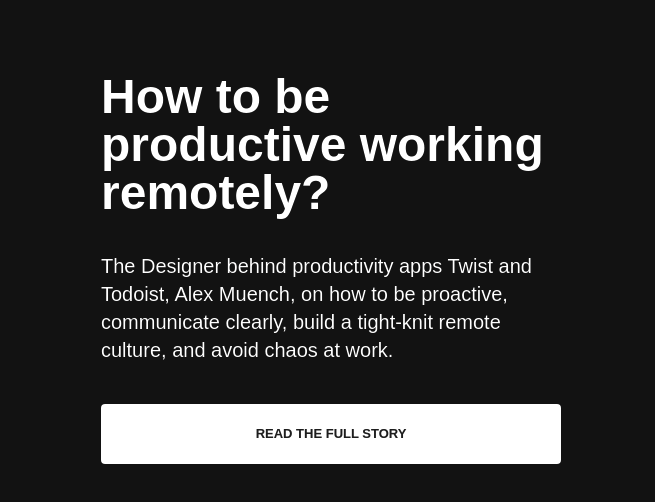
2. Top 10 lists
Top 10 lists are popular because they’re easy to read. Create a list of valuable tips, popular blog articles, or money-saving ideas that refer to your business. It’s a useful way to get more mileage out of your content marketing efforts.
If 10 items feels like too big of a commitment, you can scale it down to five or three.
Moz does a great roundup of its top 10 blog articles and simply lists the titles in this basic yet effective newsletter:

3. Add an infographic
Use a tool like Canva to create a cool infographic for your newsletter. Turn your year-end sales numbers into a cool chart, or provide customer satisfaction ratings and comments in a visual way. Newsletters tend to be text heavy, but great marketing campaigns have stunning visual elements too.
4. Roundup
Create a post that offers a recap of your company’s recent news, articles, or popular social posts. It’s a great digital marketing tactic to repackage content that already exists.
5. Remind subscribers about a poll or survey
Surveys can help small businesses collect valuable information, but response rates can often be lackluster. The average response rate for a survey is about 33%. The best way to get people to fill out a survey is by sending it out several times and in several different ways.
You can send a solo email that focuses specifically on the survey, share a link to the survey on social media, and include it in your newsletter. This email, which was sent by Scoot and showcased on ReallyGoodEmails , could easily be part of a larger newsletter.

6. Customer reviews
Collect a few customer reviews on a specific product and share them in your newsletter. Start out by explaining the product, offer a picture of it, and share a short comment or two.
Remember, newsletters aren’t about selling products, so something like this should be done sparingly and be placed at the bottom of a newsletter.
7. Case studies
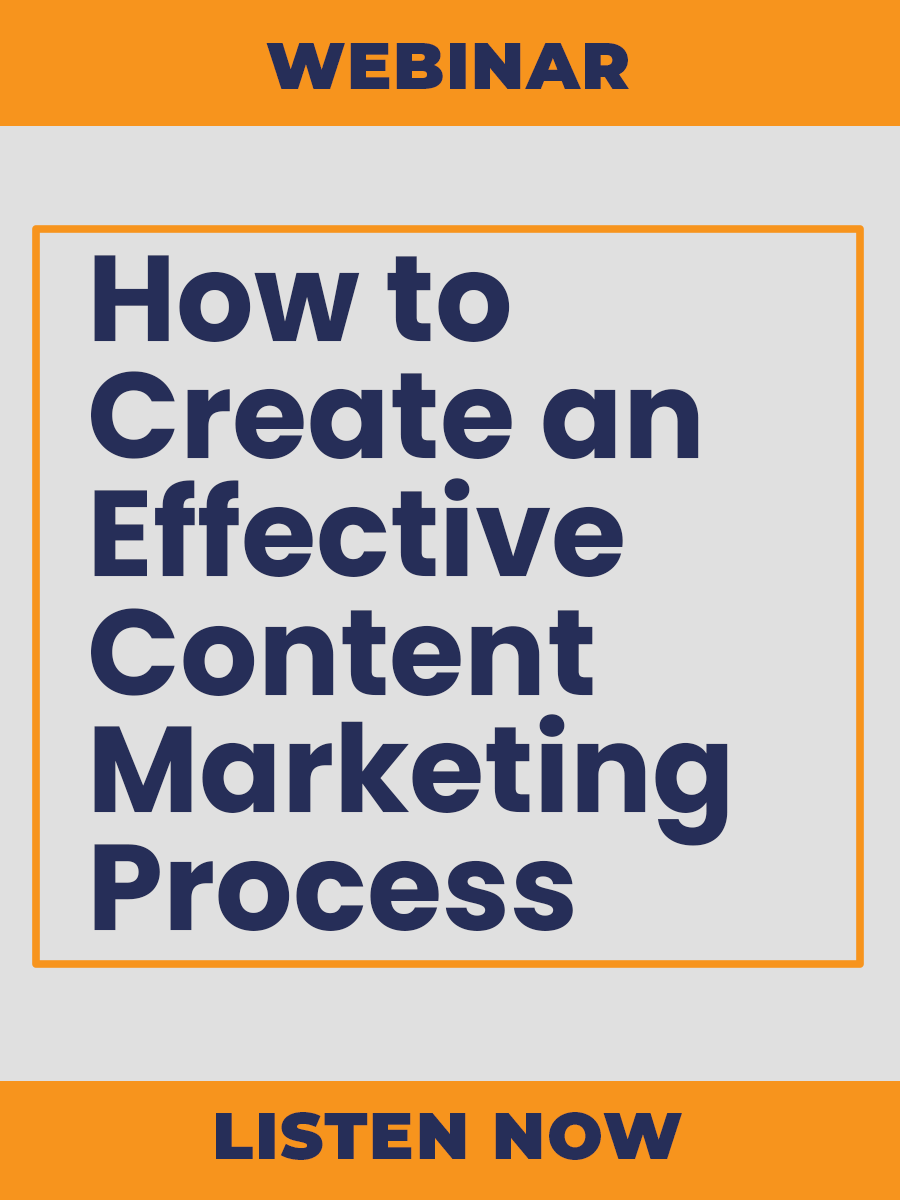 Do you have case studies on your website? If so, why not share them in your newsletter too? Case studies provide a great combination of social proof and testimonials, which can help drive sales.
Do you have case studies on your website? If so, why not share them in your newsletter too? Case studies provide a great combination of social proof and testimonials, which can help drive sales.
If you’re already creating and sharing case studies on your website, why not add a link to your most recent case study in your newsletter? A good case study presents a problem and a solution and has easy-to-read statistics. Make sure you have all of these elements before sharing a case study with consumers.
8. Podcasts
Podcasts are gaining popularity. Research shows 114 million Americans have listened to at least one podcast in 2020, compared to just 20 million in 2018. If you’re hosting a podcast, add a link to your newsletter. You might even mention the podcast in your email subject line to drive open rates.
Spotify sends out a newsletter-like email that explores several of its podcasts. Here’s an elegantly-designed email that promotes Michelle Obama’s podcast. This could easily be mimicked and used as a segment of a company newsletter.
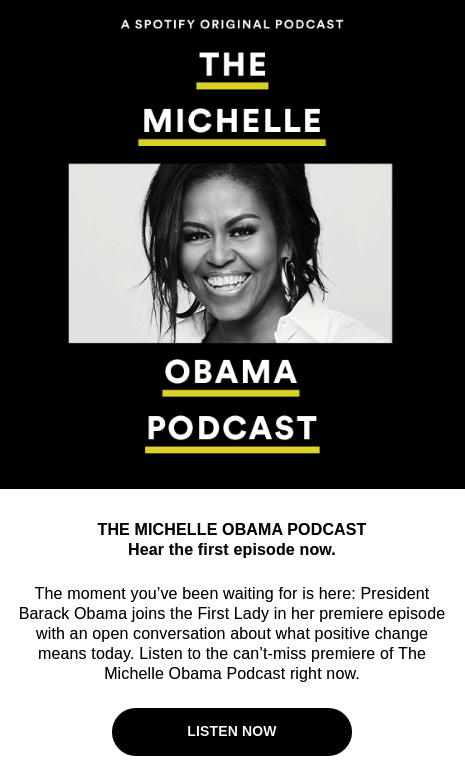
9. Free resources
Have you created an eBook, white paper, or guide? If so, promote it in your newsletter. Ideally, this resource won’t be gated to ensure readers can access the content quickly and efficiently. Make sure the resource is valuable to the reader and focuses on their needs; as opposed to writing an eBook about how awesome your company is. The content should be in-depth and fresh.
If you created an eBook a few years ago, it’s not something you should promote without cleaning it up and refreshing it first. Here’s a great example of a playbook being promoted:
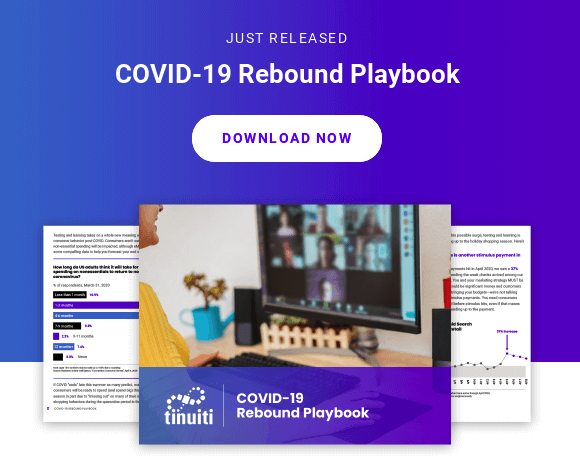
Events
COVID put a temporary hold on in-person events like trade shows and conferences, but a recent survey shows events will likely come back in 2021. Eighty-one percent of event planners will host their next in-person event sometime this year. Use your newsletter to invite or remind subscribers about upcoming events.
10. Invitations
Marketers should tell customers about events like a webinar, charity drive, or customer appreciation sale in their next newsletter. Create an event on Facebook so guests can RSVP and include the link in your monthly newsletter.
11. Upcoming trade shows
Planning to attend a trade show? Advertise the details in your newsletter. Include a picture of last year’s booth, explain what’s new this year, and provide valuable information like the most affordable place to park. With an event like this, you can mention small tidbits of information over several different newsletters.
Business information
Your newsletter is a great place to offer information about your business or brand. Here are a few ways to educate subscribers about your business:
12. Business history
Tell customers a piece of your company’s history. You can add a morsel or two to each newsletter, create a timeline, or write a longer article on the company’s anniversary that covers big milestones. ReallyGoodEmails has a great example of David’s Tea showcasing its history:
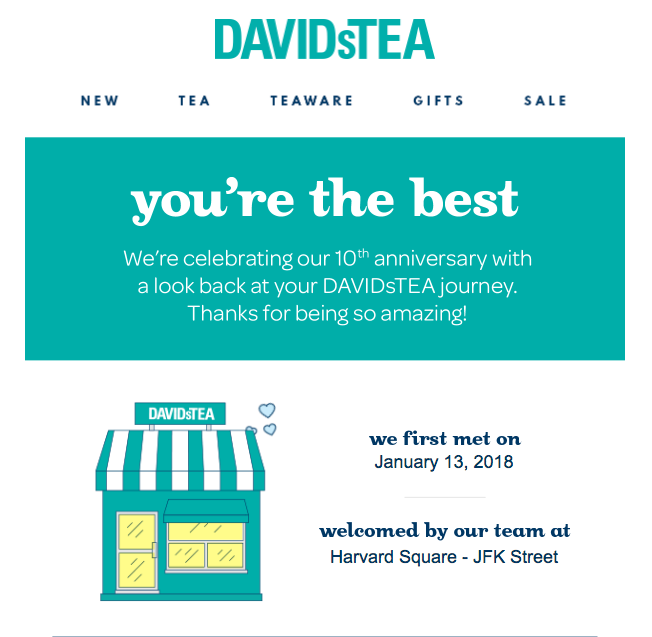
13. A letter from the owner
A great newsletter has some authority to it. A letter from the business owners or CEO is a nice way to accomplish that. The letter could thank customers for their support, discuss industry news, or talk about a new product the company is about to offer. Customers need to hear from those in charge now and then; it helps maintain a trusted relationship.
14. Employee of the week
Pay tribute to a special employee by highlighting him or her in your newsletter. Keep it short and sweet, but provide enough information to show customers that your staff is top-notch. Always include a picture of the employee.
If you create an employee newsletter, highlighting team members is a great way to boost morale.
15. Frequently asked questions
What are the top five FAQs that your secretary or sales team receives each week? Use the information to create a frequently asked questions post for your newsletter or create a simple design element that adds one question to the bottom of each email.
16. Updates on changes
If the company has a new boss, is planning a renovation, or is changing the way it does something, use your company newsletter to update customers.
17. Address solutions to problems
If customers are complaining about a particular aspect of your business, address it in your newsletter. Explain what you’re doing to make corrections. Keep it positive, ask customers for their patience, and make every effort to fix the problem quickly.
18. Business video tours
Break out your smartphone and provide a short tour of your business for customers to check out in your newsletter.
19. Discuss partnerships
Whether you’re teaming up with a local non-profit or the business next door, tell customers how the partnership benefits them in your newsletter.
20. Behind-the-scenes photos
Give customers a look behind the scenes by posting pictures of employees moving massive inventory for the holiday season, or a shot of your team stocking shelves. If you have a few extra minutes, consider shooting short YouTube videos to give customers a glimpse of the work that goes into the business.
Social
You can promote social initiatives in your newsletters too. It’s a great opportunity to cross-promote your business and encourage newsletter subscribers to become part of your social media family.
21. Tell subscribers about social giveaways
Are you giving away something cool on Facebook? Remind your customers about it in your newsletter. Provide participation details and a link to enter. Here’s a great example from VRBO:
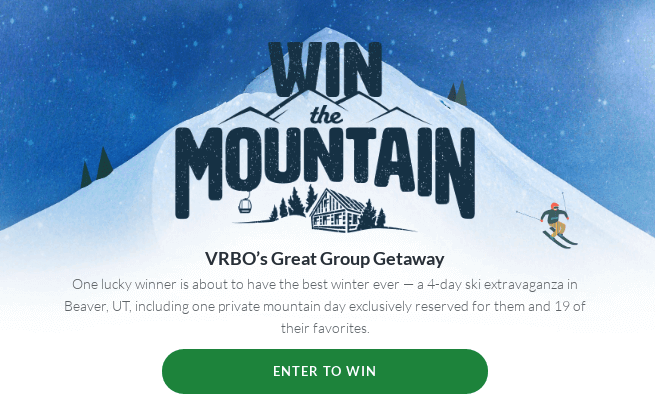
22. Encourage subscribers to follow you
Add a brief “Follow Us” section to your newsletter that includes all of your social links. Tell subscribers that you’re trying to hit a certain number of followers to encourage them to like your pages.
23. Tell subscribers about a social competition
Ask subscribers to join a social competition. You might ask them to submit photos of themselves using your product or write a short essay about a loved one. Launch the competition in your newsletter and remind subscribers to participate.
Promotional ideas
Your newsletter is a way to communicate with your customers and build a relationship, so you don’t want to fill your newsletter with promotional material. However, once in awhile it’s okay to add these ideas:
24. Add a special coupon to your newsletter
Offer a coupon just to your newsletter readers. Provide a coupon code to use online or a printable coupon that can be used in-store.
25. Mention a new product launch
When you have a new product coming in, tell your customers about it. Build the hype by providing availability, release dates, and options like sizes and colors that are available. Here’s a simple way to introduce a new product – let the product image do most of the talking, like this:

26. Refer-a-friend promotion
Allow subscribers to forward your newsletter to a friend, and if they subscribe to your list, send the customers a special deal or discount for helping you grow your list. (After all, referrals are always welcome).
Fun ideas
Loosen the tie or kick off your heels. Your newsletter doesn’t have to be stuffy. Create some out-of-the-box content too with these ideas:
27. Personalized images
Are you personalizing emails? Many brands add a subscriber’s first name to a subject line, but that’s about it. Personalization works, so why not up your game with a personalized image? Pinpointe has a partnership with NiftyImages that gives brands the power to create personalized images like these:

28. Make a connection to a unique holiday
When an odd holiday rolls around that’s connected to your business, use it to spark a small post in your newsletter. For example, a bar can write an article on National Margarita Day and offer a discount. Here’s a list of odd holidays to use.
29. Cute or wacky photos of your employees
Did your company host a Halloween costume party? Are you hosting an Evening with Santa? If so, use a few of the pictures in your holiday newsletter to give subscribers a “glimpse behind the curtain.” Be sure to get permission to use the photos first and use good judgment. (Pictures from the 11th hour of the holiday party, for example, probably aren’t a good idea).
30. What’s the deal with the weather?
At some point, crazy weather will impact your area. Consider writing about it and how it impacted your business. Maybe create animated GIFs that show employees shoveling, for example. Be careful, though. Don’t write about any storms that hurt someone, stick to interesting weather topics.
You want subscribers looking for your newsletter. To do that, you need to create content that’s interesting and intriguing. With these newsletter content ideas, you’ll be able to do just that.


